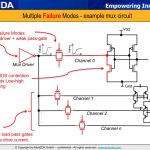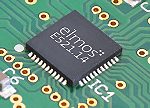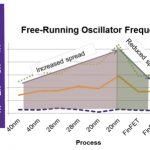You are currently viewing SemiWiki as a guest which gives you limited access to the site. To view blog comments and experience other SemiWiki features you must be a registered member. Registration is fast, simple, and absolutely free so please,
join our community today!
WP_Term Object
(
[term_id] => 157
[name] => EDA
[slug] => eda
[term_group] => 0
[term_taxonomy_id] => 157
[taxonomy] => category
[description] => Electronic Design Automation
[parent] => 0
[count] => 4409
[filter] => raw
[cat_ID] => 157
[category_count] => 4409
[category_description] => Electronic Design Automation
[cat_name] => EDA
[category_nicename] => eda
[category_parent] => 0
[is_post] =>
)
There are three critical goals that designers of custom digital designs and memories look to achieve with high sigma verification:
(1) obtaining accurate results,
(2) achieving results with good run-time (efficiency), and
(3) gaining proper insight into how their circuit is behaving along with an understanding of failure … Read More
FPGA prototyping has come a long way since the late 1980s when chipmakers began using FPGA devices for building system prototypes of ASIC designs. The utility of a working FPGA prototype allows hardware designers to develop and test their systems, and it provides software developers early access to a fully functioning hardware… Read More
On Sunday night at DAC we heard from Gary Smith that traditional EDA companies need to grow into new market segments in order to stay relevant, and that a systems-level approach to multi-disciplinary engineering was called for. I almost jumped out of my seat and said, “Hey, what about Dassault? They are already doing that … Read More
On Monday Synopsys announced that it was acquiring Elliptic Technologies. They have one of the largest portfolios of security IP consisting of both semiconductor IP blocks and software. Increasingly, security requires a multi-layer approach involving both secure blocks on the chip and a software stack on top of that.
Elliptic’s… Read More
eSilicon ♥ ARM!by Daniel Nenni on 07-01-2015 at 5:00 amCategories: EDA, eSilicon
The things I enjoy the most at conferences are presentations by customers, the companies that solve the problems we face every day with modern semiconductor design. We all have access to the same tools and IP and use the same foundries so it’s the actual design and implementation that separates the wheat from the chaff, absolutely.… Read More
In recent years, a number of technologies as well as the constant desire for faster and more pervasive mobile communication systems have set in motion a well sustained growth trend for the “next big thing” such as the Internet of Things (IoT), wearables, automobile electronics, advances in medical devices etc. In all these areas… Read More
One of the most interesting presentations that I went to was the last presentation at the Synopsys Custom Lunch (no, the lunch wasn’t custom, we all got the same, but the presentations were about custom design). Since the last presentation was by Synopsys themselves and not by a customer, it wouldn’t seem promising that it could … Read More
The interconnect technology is one of the unsung heroes of the system-on-chip (SoC) revolution. It’s the on-chip networking fabric that is used to link various IP cores on an SoC floorplan. The technology facilitates links between multiple processors, on-chip memories, hardware accelerators and more. In other words,… Read More
We often think of EDA vendors competing with each other and using proprietary data formats to make it difficult for users to mix and match tools, or even create efficient flows of tools. At the recent DAC event in San Francisco I was pleasantly surprised to hear that two EDA vendors decided to cooperate instead of create incompatible… Read More
I’m an An Steegen groupie. Once or twice a year I see a presentation by her and it is a great summary in a ridiculously short period of time of all the potential upcoming semiconductor technologies. Yesterday was my annual fix at the imec Technology Forum (ITF). Today I got to sit down with her at the conference center.
An is different… Read More








TSMC vs Intel Foundry vs Samsung Foundry 2026